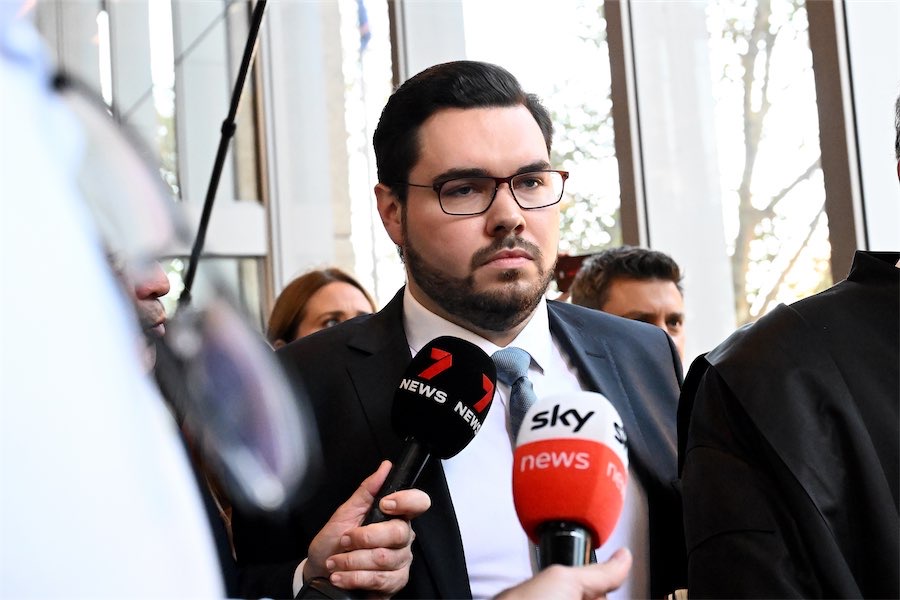Letter writer ANDREW SNOWDON, of Wamboin, says: “It’s time to remember what roads are actually for, and do something to improve flows, not hamper them.”
THE June “QPRC News” discusses the upgrade of Queanbeyan’s Monaro Street, which apparently has been oxymoronically “a priority for many years”.

The summary of the proposal includes:
- “widening the footpath”, although I would have thought there is ample room for pedestrians,
- “new paving, additional planting and lighting”, very necessary given the aged appearance currently,
- “reduced median width”, well the space has to come from somewhere, but it is hardly a safety improvement for traffic,
- “a lower speed limit” and this is where I really part company, but more in a minute,
- “changed turning options at intersections”, I can only guess that this is a euphemism for “no right turn”,
- “new street furniture” which, I guess, hints they would like the main street to become an outdoor restaurant and we should collectively pay for the seats, and
- “wayfinding”, which is modern vernacular for fixing the signs.
The point that seems obvious to me is that the traffic is forced to use this route because of the bridge. Follow me here; the road is there to connect Queanbeyan to Canberra and the coast and all the points between, the bridge is a necessary part of the road, although there are some alternate options, the geography means there will always be significant traffic volumes, the real estate surrounding the road is valuable because of the passing traffic.
There is a conflict here between the needs of travellers and the desire for an attractive main street.
From a traffic perspective it’s a bottleneck, but one we’ve learnt to live with. How can businesses survive when trade virtually stops during construction? Some won’t.
So the question is, can we live with a bottleneck in the main street, because this is the inevitable consequence of lower speed limits, not to mention street furniture?
This brings us to the broader topic of speed limits. Locals in many of our regions have endured lengthy road works that have resulted in significantly reduced travel times.
The classic example of public frustration was the seemingly endless work on the lower half of Sutton Road. For about two years various sections were reduced to one lane with the dreaded auto-traffic lights. The public hoped that realignments, safety barriers, drainage and a new surface would make for a more comfortable drive, only to discover at the end of it all the limit was dropped from 100 to 80. From a commuting perspective we were better off before.
Now the road is suited to 100km/h more than ever, but instead we sit tense behind cars doing 75, that we don’t dare pass because of the regular speed cameras.
Life would be so much better if council road planners were paid a retainer and commission based on travel times through the main corridors, weighted against safety performance.
It’s time to remember what roads are actually for, and do something to improve flows, not hamper them. Restaurant precincts can be lovely, but the main street of Queanbeyan is NOT the place for one.
Andrew Snowdon, Wamboin
Happy to help with resignation letter
DURING the last few years, I have been an avid writer of letters to the editor, both to “CityNews” and “The Canberra Times”; I have had many letters published regarding social, criminal justice and coronial perspectives.
Further, I believe I have earnt some stripes for being a respectable writer on such topical issues.
With this competence, I am more than happy to assist Shane Drumgold, Director of Public Prosecutions to pen his resignation from his position.
Given Mr Drumgold appears to have gone underground, with no recent comments on why he is on leave, it makes perfect sense that I assist in his demise.
Janine Haskins, Cook
Seeing through the double vision
ROBERT Macklin nicely connects political expediency (he calls it “double vision”) to explain how Albanese can profess strong religious commitment, yet deny it affects his judgement when it comes to supporting the ACT Labor-Greens government over Calvary (“When political double vision blinds the science”, CN June 8) .
He can support India’s Modi, while excusing the latter’s autocratic methods of oppressing Sikh and Muslim communities in India.
And, as Robert reminds us, Albo also excuses Modi’s practical support for Russia, while “ignoring Xi Jinping’s attempts to broker talks between the combatants” because, as Robert suggests, “somehow the Indian religious component trumps China’s communist ideology”.
And where, asks Robert, does all this leave our political and religious connections. We’re gradually waking up, it seems, with religious affiliation becoming less and less the Australian way of life – not helped either by the Catholic church’s appalling record in protecting child-abusing clergy over the suffering of their victims – not that other religions are totally free from sin.
Yet in the midst of the still remaining double vision, we keep giving religious bodies tax-free status. Get rid of it, says Robert, so we can all “run the race of life down equal lanes”. Couldn’t agree more.
Eric Hunter, Cook
‘Flawed’ judicial system needs reform
FOLLOWING the recent release from prison of Kathleen Folbigg after being wrongfully incarcerated for 20 years, I have come to the inevitable conclusion that our judicial system is flawed and needs to be reformed.
The jury or judge-only system used for criminal cases leaves a lot to be desired, judging from the number of persons who have been wrongfully incarcerated under the judging criteria of “beyond a reasonable doubt”. How does one differentiate between what is reasonable or unreasonable, as what is perceived as reasonable by one person, can be deemed to be unreasonable to another?
In civil cases the criteria “balance of probabilities” is used. At what level does it become probable or improbable?
This open-ended terminology in both criminal and civil law is open to wide interpretation, which makes law cases a lottery, and that is a highly unsatisfactory state of affairs.
Mario Stivala, Belconnen
Bemoaning the bad ‘Times’
HELEN Musa’s article “‘Times’ blames cost and abandons arts reviewers” (CN June 22) brings to mind a recent conversation with a fellow resident of Deakin. We both lamented the present state of “The Canberra Times”.
In our view, the “Times” was some years ago an interesting and factual journal of ACT, Australian and international news (befitting a national capital) with probing reporting; incisive commentary; and a healthy coverage of the arts, as well as sport.
The “Times” has declined to an unevenly-written jumble (I must resist beginning with its journalists’ English grammar and spelling) of local, sometimes trivial issues. Most of the truly interesting, important and well-written articles are from news services, syndicated and unattributed offshore sources.
There is also a lop-sided emphasis on sport; horse racing and its attendant gambling are the most recent additions to the sports side of the reporting scales.
Now “The Canberra Times” is handing over its coverage of the arts to “amateur critics” among its staff. One can only wonder what will be next to get the axe on the altar of cost-cutting.
Dr Douglas Mackenzie, Deakin
Albanese’s just a show pony waving the flag
ANYONE would think Robert Macklin was writing for the “Canberra Times” or the “Guardian” in his article “Maybe Albanese is playing a long game” (CN June 22), in waxing so lyrically about what the PM and his team has presumed to have done over 13 months in government.
Let’s review what he has done. He has gone with AUKUS but there are no more funds for Defence for four or five years and has cut major projects. NDIS (a Labor creation) is out of control and it will be seen if Labor can tame it.
Penny Wong has gone missing in action ever since Mr Keating gave her a verbal mauling about her performance. Dr Chalmers is in fact a do-nothing treasurer of zero achievement so far except to tell suffering Australians how tough they are having it.
Linda Burney is not up to the job of selling the Voice and Albanese is not helping in his intransigent, obfuscating, crash-through or crash approach.
And our esteemed ex-Chief Minister Katy Gallagher has not exactly covered herself in glory with her questionable involvement in the Higgins affair.
Then we have the failed minister of the past Mr Bowen (think the 60,000 illegal boat people under his watch) putting Australia into billions, maybe a trillion or more dollars in debt with his ideological renewable energy policies. Note also his denigration of clean nuclear energy while the fact that the investment in renewable wind and solar will have to be largely repeated every 20-25 years (turbine bladed every 10 years). Then we have Tony Burke, dismantling the building industry watchdog, giving the CFMEU a free reign to run riot, and trying to reign in contract labour for the benefit of the unions.
Plus Albanese’s grandiose promises for the aged-care sector, of which he has Buckley’s hope of achieving. Then there’s the housing fiasco. One could go on.
To his credit though, Mr Albanese is certainly doing his fair share of globetrotting and loving it at great taxpayer expense but of little real positive effect – he is just a show-pony waving the flag.
In short, the Albanese government has not achieved anything of substance yet except to spend billions. It will end in tears for all.
Max Flint, via email
Who can be trusted?
In a world of spin and confusion, there’s never been a more important time to support independent journalism in Canberra.
If you trust our work online and want to enforce the power of independent voices, I invite you to make a small contribution.
Every dollar of support is invested back into our journalism to help keep citynews.com.au strong and free.
Thank you,
Ian Meikle, editor





Leave a Reply